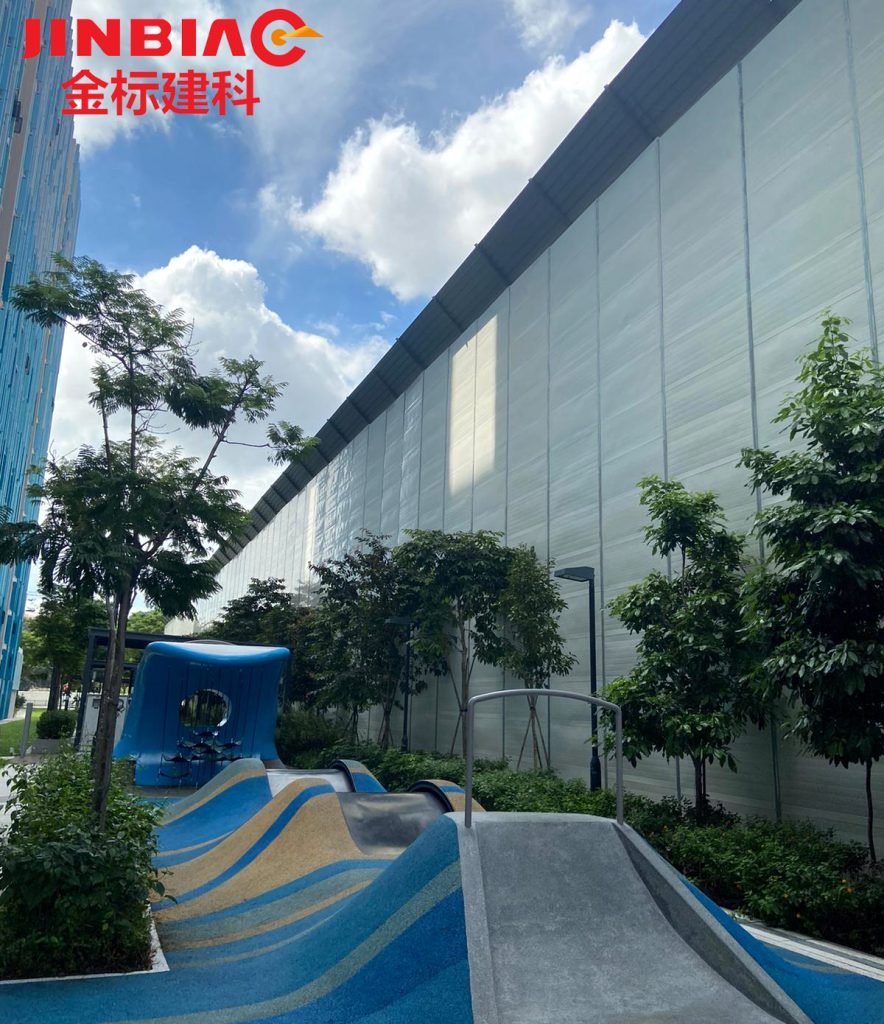A sound barrier is a structure that blocks the transmission of noise. This can be used to reduce traffic noise, industrial noise and other intrusive noises. Sound barriers are most commonly made from metal panels with insulation between them for thermal insulation. Sometimes simply planting trees to block the view of an undesirable site also works as a sound barrier. There are many different types of materials used in making these walls such as glass panels, concrete panels and bricks ̶ all depending on what one needs protection from and how much they want to spend on it.

Sound barriers provide relief for people living near busy highways who suffer from sleep deprivation due to the constant hum of cars passing by at night. They also protect against impulse sounds that may instantly affect the wellbeing of those who hear them.
Sound barriers are used by people mostly in the following situations:
1. Construction projects.
To reduce noise pollution at construction sites, engineers install sound blanket material on the existing fence before excavation takes place. This reduces unwanted noise from jackhammers, pile drivers and compressors that is loud enough to disturb nearby residents during the building process. More architects are now specifying this measure as part of their safety plans for new buildings in order to protect public health and well-being.”
Construction sites use sound blankets to block noise and isolate the surrounding area from unwanted sounds. As more people begin to live near construction areas, they request this kind of technology in order to minimise disturbance while simultaneously protecting their quality of life at home.
2. On highways and roads.
Traffic and industrial noise can be very disruptive, especially near sensitive land like schools. Luckily, sound barriers are an effective way of reducing the negative effects of these sounds by blocking them from reaching nearby people or property.
Sound barriers are the most effective method of reducing traffic and industrial noise pollution. A structure designed to protect sensitive areas from environmental sounds, they are usually wall-like structures built along highways or next to factories.
3. Mixed-use spaces.
Visitors to a mixed-use property, such as an open-air ground or commercial complex, want peace and quiet. When they hear cars screeching out of the driveway during their event in a parking lot located near it, that interrupts the ambiance.
When people visit a space where there’s both public access areas and private spaces like those found at office buildings for example, no one wants offensive noise from outside disrupting its vibe. This is especially true when attending special events held outdoors on another site nearby which could be affected by this kind of disruption.
With sound barriers, an open area suddenly feels enclosed and contained. People can enjoy the isolated sounds coming from one source without being affected by other sources nearby.
4. Concerts.
People attending a music festival don’t just want to hear the sound from their stage—they also need that same feeling of energy throughout the venue. In order for this goal to be achieved, it’s important for everyone at a concert or show to have an enjoyable time without disruption from other sounds and people talking loudly in front of them.
A well-designed sound barrier system can absorb excess noise, create a coherent musical atmosphere, and help to keep the focus on the show itself. The barriers are more than just blocks that stop sounds from escaping; they’re tools for drawing energy in towards better concert experiences.
Hebei Jinbiao is a leading company in Noise Barrier products and Fencing products in Singapore. We guarantee to provide you with the most high-quality Noise Barrier and Fencing products along with our dedicated assistance. Do not hesitate to contact us. We are looking forward to helping you solve your noise issues, safety issues and protect you from noise pollution as well as ensure your safety.
